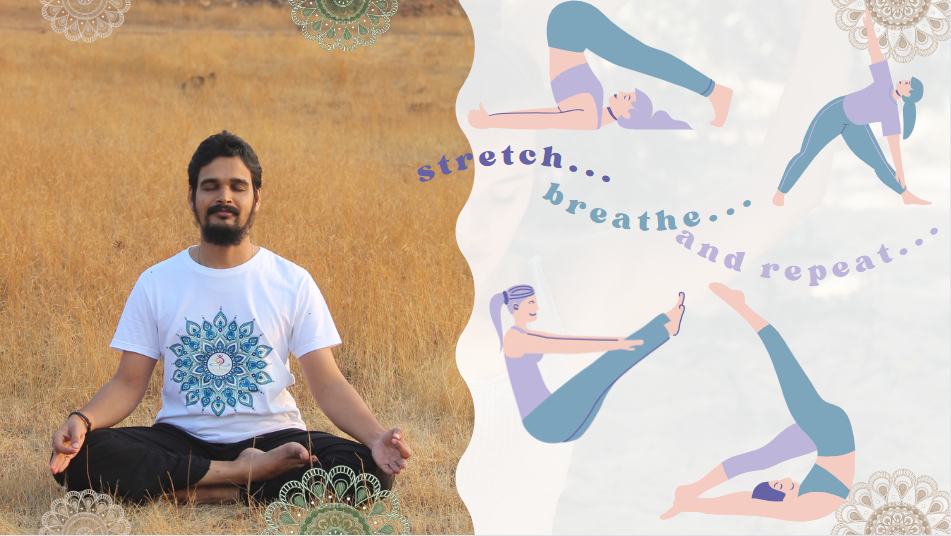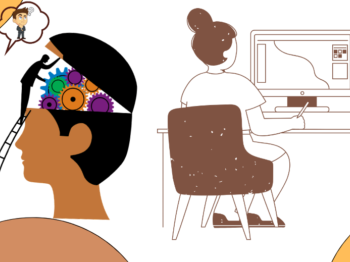Who Can Practice Yoga? Awesome benefits Assured for these 6 groups.
“Yoga welcomes all, for it is not bound by age, ability, or background; it is a universal journey of self-discovery and transformation, accessible to every soul willing to embark upon the path.”

Yoga, an ancient practice that originated in India over 5,000 years ago, has transcended time and culture to become a global phenomenon. It’s often hailed as a holistic approach to well-being, encompassing physical, mental, and spiritual dimensions. One of the most beautiful aspects of it is its inclusivity; it is a practice that truly welcomes everyone. In this comprehensive exploration, we’ll delve into the question of who can do yoga, highlighting its versatility and adaptability to accommodate people of all ages, fitness levels, and physical abilities.
The All-Encompassing Nature of Yoga
At its core, yoga is a philosophy and a way of life that embraces unity and balance. The word “yoga” itself comes from the Sanskrit word “yuj,” which means to yoke or unite. Yoga seeks to unite the individual self (Atman) with the universal consciousness (Brahman), and it does so through a variety of practices that address the body, mind, and spirit.
This inclusive philosophy extends to the physical practice of yoga (asanas), which is what most people are familiar with today. The diversity of yoga styles and the adaptability of poses make it accessible to virtually everyone. Here’s a look at who can benefit from yoga:
1. All Ages: Yoga for Every Stage of Life
Yoga is truly ageless. It’s an inclusive practice that welcomes individuals from infancy to old age.
Yuva Vraddhō ati vraddhō vā vyaditō durbhalōpiva|
Abhyasāt sidhimāpnōti sarva yōgē shvatanditah ||
Maharshi Svatmarama
According to swami Svatmarama
There are specific yoga practices and classes designed for each stage of life:
Yoga for Kids:
Children can enjoy the benefits of yoga through playful and imaginative classes that promote physical fitness, flexibility, focus, and emotional balance.
Yoga for Teens:
Yoga can help adolescents navigate the challenges of this transformative phase by promoting self-esteem, body awareness, stress management, and self-expression.
Yoga for Adults:
Most people start their yoga journey as adults. Whether you’re in your 20s or your 70s, there are practices that can meet your needs, whether you seek physical fitness, stress relief, or spiritual growth.
Yoga for Seniors:
Gentle yogic practices are excellent options for seniors, offering movements and postures that enhance flexibility, balance, and over all well-being while considering the unique needs of an aging body.
2. Fitness Levels: Yoga for Everyone, Regardless of Fitness Level
It doesn’t discriminate based on fitness level. Whether you’re a seasoned athlete or someone who hasn’t exercised in years, there’s a style of yoga that can be tailored to your fitness level:
Beginners:
Yoga classes for beginners offer a gentle introduction to the practice, focusing on foundational poses and alignment. These classes provide a welcoming and supportive environment for those new to yoga.
Intermediate and Advanced:
As you progress in your practice, you can explore more challenging poses and sequences. Ashtanga Vinyasa method of practice and advanced Hatha yoga are excellent options for those seeking a more physically demanding practice.
Athletes:
Many professional athletes incorporate yoga into their training routines to improve flexibility, balance, strength, and mental focus. It can also help prevent injuries and aid in recovery.
People with Limited Mobility:
Adaptive yoga practices, such as are ideal for individuals with limited mobility or physical disabilities. These practices use props and modifications to make yoga accessible to all.
3. Physical Abilities: Yoga’s Adaptability and Modification
Yoga’s adaptability is one of its greatest strengths. It can be modified to accommodate a wide range of physical abilities:
Injuries and Rehabilitation:
Yoga can be used as a tool for rehabilitation, helping individuals recover from injuries or surgeries. Under the guidance of a knowledgeable yoga guru, poses and sequences can be adapted to support the healing process.
Chronic Conditions:
Yoga can be adapted to accommodate various chronic conditions, such as arthritis, fibromyalgia, multiple sclerosis, and chronic pain. It can help manage symptoms, improve range of motion, and reduce discomfort.
Pregnancy:
Pregnancy yoga classes are specifically designed for expectant mothers. These classes focus on gentle, safe movements that support the changing body during pregnancy. This can be categorized as
Pre-Conception
Couples desires of having a dream child may opt for pre-conception yoga which includes KayaShuddi(Body), Manoshuddi(Mind) and Beejashuddi(Seed).
Pre-Natal
Those who are already expecting mothers in order to avoid the pregnancy complications, and to improve the chance of normal delivery can opt this.
Post-Natal
After childbirth to regain the normal shape, and to prevent post-natal complications like back pain, mother can go for post-natal yoga.
Mental Health:
Yoga’s emphasis on mindfulness and breath can be particularly beneficial for individuals dealing with mental health challenges such as anxiety, depression, and post-traumatic stress disorder (PTSD). Yoga can provide tools for stress management and emotional well-being.
4. Stressed Individuals: Yoga for Stress Reduction
In our fast-paced world, stress has become a ubiquitous companion. Yoga, with its emphasis on relaxation and mindfulness, is a powerful tool for managing stress and anxiety. Practices like deep breathing, meditation, and restorative yoga can promote mental well-being and help individuals find calm amid the chaos of daily life.
5. Spiritual Seekers: Yoga as a Path to Self-Discovery
Yoga is not limited to physical postures; it is a spiritual path for those seeking deeper self-discovery and connection to the divine. Through practices such as meditation, mantra chanting, and the study of yoga philosophy, individuals can explore their inner world and cultivate a sense of purpose and meaning in life.
6. Busy Professionals: Yoga for Balance
For busy professionals juggling demanding careers and hectic schedules, yoga can provide a much-needed respite. Short, focused yoga sessions can be incorporated into a busy day to enhance focus, reduce stress, and increase productivity.
The Universality of Yoga
What makes yoga so universally accessible and transformative? It’s rooted in its adaptability and the profound impact it has on the body, mind, and spirit. Here’s a glimpse into what yoga can offer to individuals of all backgrounds and walks of life:
1. Physical Benefits:
Flexibility:
Yoga postures promote flexibility by stretching and lengthening muscles, enhancing range of motion in the joints.
Strength:
Many yoga poses require the engagement of various muscle groups, leading to improved overall strength.
Balance:
Balancing poses challenge stability and proprioception, enhancing balance and coordination.
Stress Reduction:
Yoga’s emphasis on relaxation and deep breathing triggers the relaxation response, reducing the production of stress hormones.
Pain Relief:
Yoga can alleviate chronic pain conditions, such as lower back pain, arthritis, and migraines, through gentle movement and relaxation techniques.
2. Mental and Emotional Benefits:
Stress Management:
Mindfulness practices in yoga help individuals manage stress by staying present and cultivating a sense of calm.
Emotional Regulation:
Yoga encourages emotional awareness and regulation, promoting a healthier relationship with one’s emotions.
Focus and Concentration:
Mindfulness meditation in yoga enhances mental clarity, focus, and concentration.
Improved Sleep:
Yoga can improve sleep quality by reducing anxiety and promoting relaxation.
3. Spiritual and Philosophical Benefits:
Self-Discovery:
Yoga philosophy encourages self-inquiry and self-awareness, allowing individuals to explore their inner world and uncover their true nature.
Compassion:
The practice of Ahimsa (non-violence) extends to compassion for oneself and others, fostering a deeper connection to all living beings.
Life Purpose:
Yoga can help individuals clarify their life purpose and find a sense of meaning and fulfillment.
The Role of Yoga Teachers and Instructors
Yoga teachers and instructors play a pivotal role in making yoga accessible to all. They are trained to offer modifications, adjustments, and guidance to accommodate the unique needs of their students. Whether you’re dealing with physical limitations, recovering from an injury, or seeking specific benefits, a knowledgeable yoga instructor can tailor the practice to suit your requirements.
Yoga Beyond the Mat: A Way of Life
Yoga extends beyond the confines of a yoga mat and studio. It is a way of life—a set of principles and practices that guide us towards a more mindful, compassionate, and balanced existence. When we embrace the inclusivity of yoga and recognize that it is a practice for all, we tap into its transformative potential. Yoga becomes a tool for self-discovery, self-care, and self-transformation, fostering a sense of unity and connection with all living beings.
In Conclusion: Yoga’s Universal Embrace
So, who can do yoga? The answer is simple: anyone and everyone. Yoga’s universal embrace extends to people of all ages, fitness levels, physical abilities, and walks of life. Itis an inclusive practice that honors the individuality of each practitionerwhile guiding them towards a path of holistic well-being.
Whether you seek physical fitness, stress relief, emotional balance, or spiritual growth, yoga offers a rich tapestry of practices to explore. The key lies in taking that first step onto the mat, opening your heart and mind to the transformative power of yoga, and embracing the journey of self-discovery and unity it offers.
As you embark on your yoga journey, remember that yoga is not about perfection; it’s about progress. It’s not about competition; it’s about self-compassion. It’s not about limitations; it’s about limitless potential. Yoga, in its inclusivity and wisdom, is a lifelong companion on your path to well-being, inviting you to unite body, mind, and spirit in harmony and balance.


